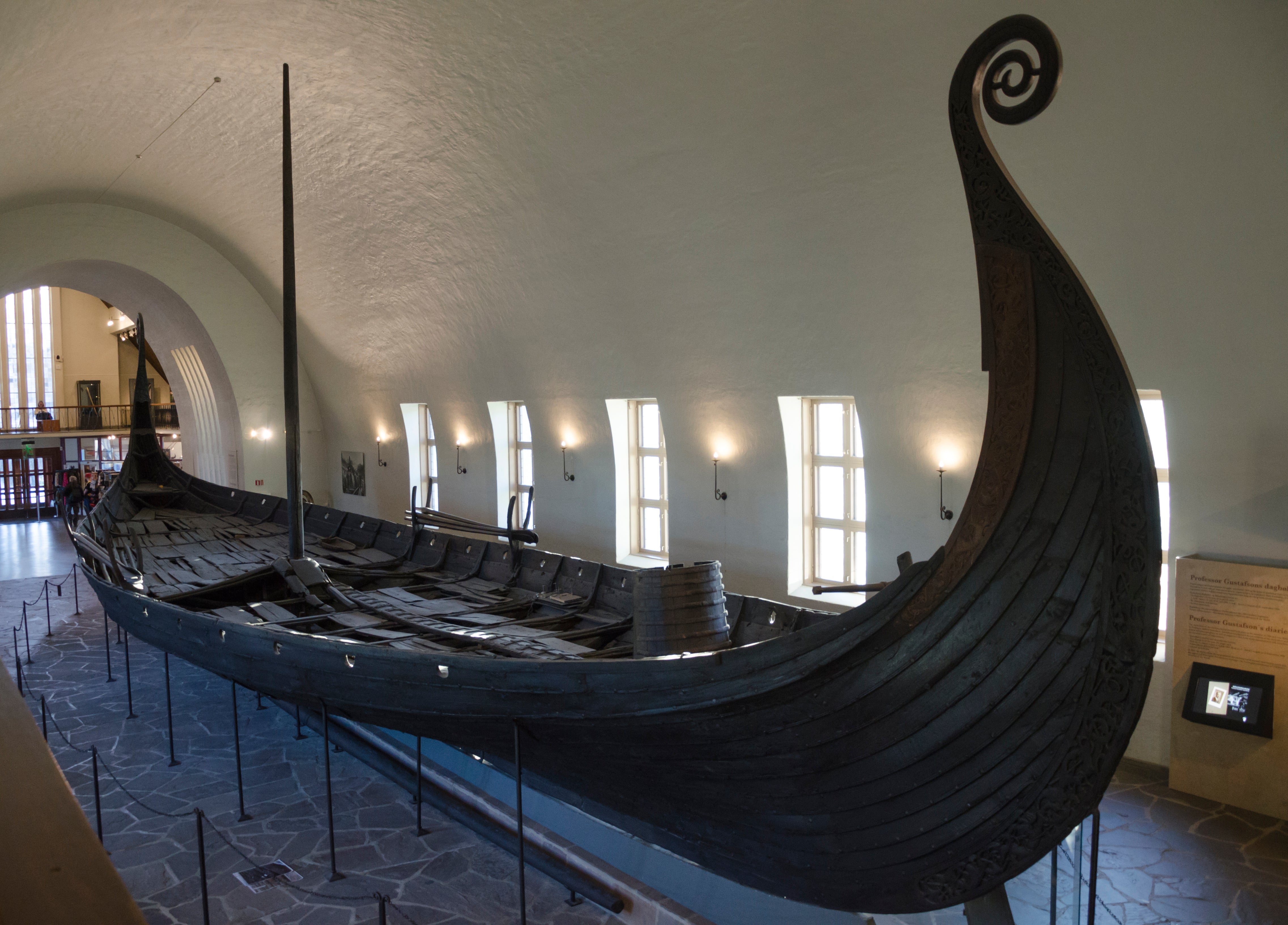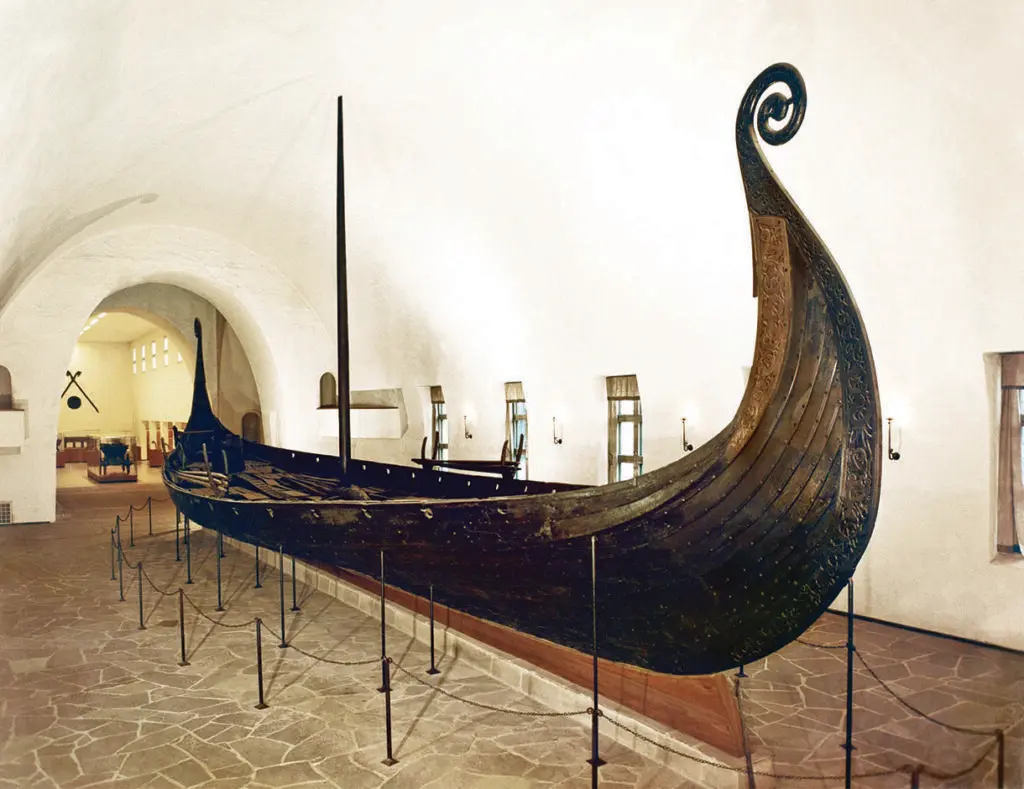The Oseberg Viking Ship, dated to 834 AD and discovered in a burial mound near Tønsberg, Norway, is one of archaeology’s most significant findings. This remarkable vessel, measuring approximately 21.5 meters (70 feet) in length, was likely used to honor two prominent women, believed to be a queen and her servant, showcasing the elevated status of women in Viking culture.
Craftsmanship and Design
Crafted from oak using advanced clinker-style techniques, the ship not only exemplifies Viking shipbuilding prowess but also reflects their rich artistry. The Oseberg ship features intricate carvings and decorative elements, including a stunning dragon head that adorned its prow, symbolizing protection and strength. This artistry not only served aesthetic purposes but also had symbolic meanings, reinforcing the ship’s role in the funerary practices of the Vikings.

Insights into Viking Society
The burial site contained an extraordinary wealth of grave goods, including textiles, sleds, a cart, tools, and even animals, which indicate the high social status of the individuals buried with the ship. These artifacts provide vital insights into daily life during the Viking Age, revealing the materials, craftsmanship, and cultural practices of the time.

Additionally, the discovery of the Oseberg ship provided significant insights into Viking funerary practices. The ship was buried with a wealth of items intended for use in the afterlife, suggesting that the Vikings believed in a continuation of life after death. Its excavation in 1904 by a team led by Gabriel Gustafson highlighted the importance of ship burial as a means of honoring the deceased, illustrating the Vikings’ beliefs regarding the afterlife and the journey beyond.
Legacy and Preservation
Today, housed in the Vikingskipshuset in Oslo, the Oseberg ship continues to captivate and educate. It offers invaluable insights into Viking life, maritime traditions, and their advanced craftsmanship. The careful preservation of the ship and its artifacts allows scholars and visitors alike to appreciate the complexities of Viking society and the significance of their maritime culture.

Conclusion
The Oseberg Viking Ship’s legacy endures as a symbol of the Vikings’ seafaring prowess and cultural richness. It stands as an essential piece of heritage in understanding the Norse world, reflecting not only their advanced shipbuilding techniques but also their beliefs, social structures, and the significance of women in Viking society. As one of the most important archaeological discoveries, the Oseberg ship remains a vital connection to a fascinating past.

